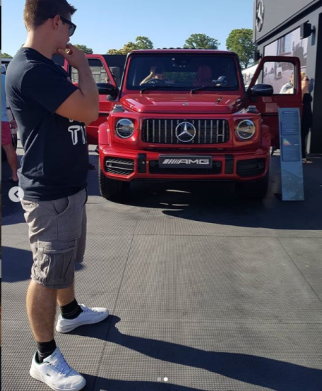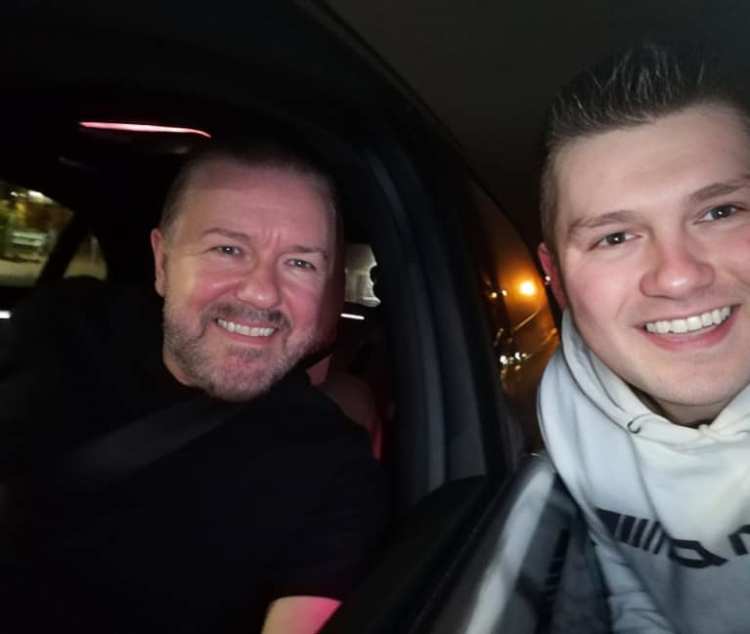Cherished Memories: The Farm and My Mercedes Benz
As I reflect on the cherished memories of my childhood, one constant thread weaves through the thoughts of my experiences: the farm owned by my parents.
The farm was for them to rear cows and to make a living by doing so. But it turned out to be more than that. It was more than just a piece of land. It was a place where laughter from our family echoed. BBQ’s in the garden, and dad on the ride-on lawnmower. Running through the field and adventures awaited around every corner of the barns in the paddock. Little did I know then that the decision my parents made to own that farm would play such a pivotal role in shaping not only my own memories but also those of my beloved cousin, Sean.
Just a quick background on Sean, is he always grew up in a house that was located in a town. My auntie and uncle liked it in the convenient proximity of local shops and easy walks to the park for their kids. I woke up and could go into the back garden. Sean could walk out of the front door and could follow pavements outside his house. He could walk to the local shop as a kid to get some sweets with his pocket money. I could not. My closest town was 5 miles away. We were rural. So when we swap surroundings, you can imagine how this can shape our outlook.
For Sean, the farm was a haven of excitement and wonder. Some summers, when he and his brothers (my other cousins) would come to visit, the farm became a playground of endless possibilities. We would play the biggest game of hide and seek by jumping to the top of hay stacks and hiding behind big tractor tyres. We would also explore the trees in my back garden and climb the biggest trees. Every moment spent on the farm left an indelible mark on Sean’s heart, as even today he would bring it up fondly in conversation when seeing him. And it was all thanks to the decision made by my parents to embrace the rural lifestyle. A decision that would ripple through the years, creating memories that would last a lifetime.
But memories aren’t just made of places as I experienced… They’re also shaped by the journeys we take and the experiences we share along the way. For me, one such experience was my beloved Mercedes CLC. From the day I picked it up, I never knew how important a role it would play in my life. It was more than just a car, it was a gateway to new adventures and many memories too.
Every road trip taken in that car was an opportunity to explore new destinations and create lasting memories. Whether it was driving along scenic coastal roads where we lived or navigating winding roads in the passing hills of Wales, the Mercedes CLC never failed to deliver a sense of exhilaration and joy. A lump of metal to some, but an engineered masterpiece to me. And with each mile travelled, my appreciation for the car deepened, knowing that it was not just a mode of transportation but a trusted companion on life’s journey. One of the last big things that the car did for me was taking my mum to her hospital appointments while she went through her journey of cancer. The car is something I depended on to help me get her safely to where she needed to be to make her better. The car holds many memories, and I will forever hold that car accountable for the many smiles it gave me, and the important errands it had to do too.
However, as time went on, maintaining the Mercedes became increasingly costly, and eventually, I had to bid farewell to my beloved car. But even as I said goodbye, I couldn’t help but feel a sense of gratitude for the role it played in shaping my memories and experiences.
In hindsight, both the farm and the Mercedes serve as a big reminder that the things we choose to surround ourselves with should enrich our lives and help us live our best life. Whether it’s owning a piece of property or driving a certain car, the true value lies not in their monetary worth but in the happiness and memories they bring.
So, as I look back on the farm and my beloved piece of metal, I am reminded that life’s greatest treasures are not measured in possessions but in the moments we share and the memories we create. And for that, I am eternally grateful.
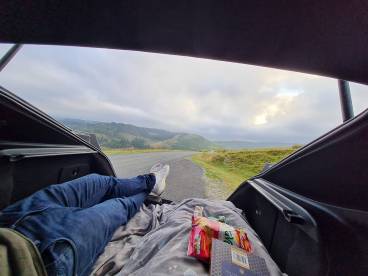
The birthday gift that KEEPS on giving!
My nephew’s birthday is coming up and he is going to be… either 11 or 12. Anyway, that’s besides the point as there is a story behind this that I want to tell you.
Ricky Gervais, the comedian, actor, writer, director once said that… he grew up on a council estate where he couldn’t have everything that he wanted, but his mum made sure that although he couldn’t have any toy or any game that he wanted, he did have any book that he wanted. Which is why I went and bought a pile of books for my nephew’s birthday.
What I want to add here is that he actually asked for books too, which is good as he’s trying to expand his mind and his knowledge to get the creative side of his brain working, which is interesting to me how he requested more literature. But the message of today is very important. And also the importance of why I do all the book reviews on my YouTube channel.
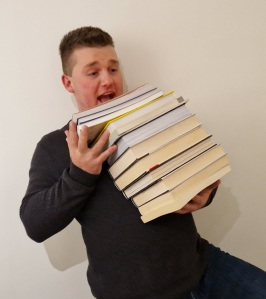
It’s about learning things that are going to help us expand by getting further ahead of where we want to be which will help us get to where we want to be in the future. I really think it is something that is very underrated. It’s like.. You can literally pick up any book and learn from someone’s experiences of their whole life within about 8 hours of reading their story even though they spent 30 years getting their experience.
And I think that’s one hell of an important lesson to remember, is that all of these people who have written these books have learnt something out of their 30 to 50 years, (however old they are), and they’ve whittled down all of the lessons that they have learnt from life into one book. All you have to do is pick it up. Or you can listen to the audio book. Whatever it is, try and obtain the knowledge of what other people have lived through because it helps you in the long run when you can ‘stand on the shoulders of giants’.
It’s the importance of understanding different ideas from different perspectives as well.
My best advice is that you shouldn’t always read from the best-seller section in the bookshop, you should pick up things that you wouldn’t normally pick up, especially from people you disagree with. I mean, I picked up a book on Donald Trump and I read that… I actually got his perspective on something that I didn’t agree with but I learnt something from it where although I don’t agree with Donald Trump, it was interesting to learn his side of what he thought life is all about. And this gave me a good sense of who he actually was.
You shouldn’t always pick up books that you will enjoy, as it is the importance of learning as well as opening our mind further where we can expand ideas and share thoughts on subjects just because you’re now open to listening to people you also disagree with!
Open-mindedness and different thought trails of how people are living their life will help you expand your thoughts and also your views on broader views across the world.
It’s very important that we can learn from it, and educate ourselves by joining online courses or by trying new experiences. I’ve gifted experiences to people because I truly believe that people learn more from life when they learn something about themselves, which is why I’ve gifted family members such experiences as bungee jumps and helicopter rides, and things of the latter because they’ve never done those things before. They’re scared of trying new things but because they are scared of them, they have now challenged themselves to do something that they didn’t think that they would do in their lifetime. (Plus it puts a smile on my face!) But that is what has gained them more life experience for themselves all because I gifted them something they wouldn’t do for themselves.
When we can learn from everything that we do, whether it’s the experience that we take, the books that we read, or the online courses that we do, we should always keep continuously learning to get us further in life.
And that’s what my blogs are for and what my YouTube channel is all about. I find it interesting how we all perceive things differently, and that is something that we’re losing in the societal norms of understanding different perspectives, which is why I write about it and do videos on the topic.
I hope this can push you to try something new or to read something from a person you dislike, because after all… You might be surprised that although we don’t agree on everything, what’s more important is that we can value each other’s opinions and learn from each other’s perspectives on what life is teaching us all.
The Puzzle of Life: Lessons Learned Piece by Piece
1. Persistence and Patience: As we sifted through the jumble of puzzle pieces, searching for the right fit, we quickly realised that solving the puzzle would require both persistence and patience. Each piece required careful consideration and trial-and-error, teaching us the importance of perseverance in the face of challenges. And also, a top tip… Begin doing the edges of the puzzle first!
2. Problem Solving: With each piece we placed, we honed our problem-solving skills. We analysed shapes, colours, and small spiders from mars… (Remember, it’s David Bowie related!) Piecing together the larger picture one fragment at a time. It reminded us that in life, challenges can often be overcome by approaching them with a methodical and analytical mindset. It also helps with perspectives.
3. Different Perspectives: As we sorted through the puzzle pieces, we found ourselves examining them from different perspectives, wondering “is that Ziggy Stardust, or is that Major Tom?” – How each one would fit into the larger picture. It served as a powerful reminder that embracing diverse perspectives can lead to new insights and solutions, both in puzzles and in life.
4. An important one… Embracing Imperfections: Not every puzzle piece will fit perfectly on the first try, and that was okay. I was forever trying to make a piece fit that clearly didn’t go into the same slot. It wasn’t even the same shape! But we learned to embrace imperfections and appreciate the beauty of the puzzle’s complexity. It taught us that life, like a jigsaw puzzle, is full of imperfections, and it’s often these imperfections that make the journey worth it.
5. Teamwork: As Amy and I worked together to solve the puzzle, we experienced the true meaning of teamwork. By pulling together our strengths and collaborating effectively, we achieved more together than we ever could have alone. If I did it alone, I reckon I’d still be sat there now instead of writing this blog! It reinforced the notion that in life, success is often a collective effort, and together, we can overcome even the toughest of challenges.
6. Celebrating Small Wins: With each piece we put in, we celebrated a small victory— a corner completed, a section filled in. David Bowie’s characters began to take shape. It reminded us of the importance of celebrating progress too, because no matter how small, it’s important to celebrate what you achieve. In life, it’s often the small victories that ultimately lead to the bigger picture.
As we placed the final piece of the puzzle, we looked upon the completed picture with a sense of accomplishment. I haven’t done a puzzle in years, so this was a real effort on my part. Our journey together through the puzzle though had taught us valuable lessons about persistence, problem-solving, perspective, imperfection, teamwork, and the importance of celebrating small wins. And as we look back on our Saturday evening, we realised that the puzzle of LIFE is not so different from the jigsaw puzzle at all. Both require patience, determination, and a willingness to piece it all together, one little piece at a time!
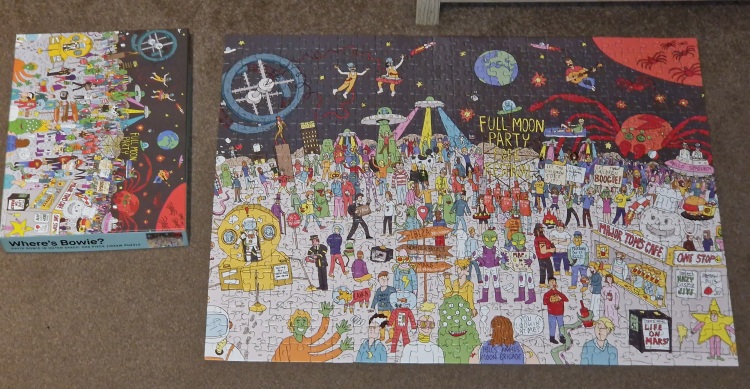
My book review and summary of: “The God Desire” written by David Baddiel
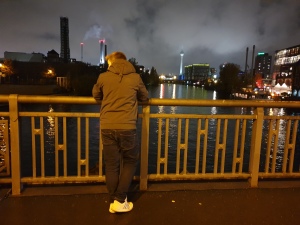
Trusting Your Gut: Navigating Life with Intuition
What is gut instinct and why does it know when something is wrong? What is it that our body can tell us that something is wrong before it even happens?
Let’s take a look into what the feeling is and to see if we can break it down.

Gut instinct, often referred to as intuition, is that deep-seated feeling we get in our stomach or chest that guides us in decision-making. It’s that inexplicable sensation that something just doesn’t feel right or that a situation is/isn’t promising.
But where does this instinct come from? Some argue it’s rooted in our subconscious mind, drawing on past experiences and learned patterns to assess a current situation. Others believe it’s a primal survival mechanism, inherited from our ancestors who relied on instinct to avoid danger and navigate their environment.
Regardless of its origins, gut instinct serves as a valuable tool in our decision-making. It can alert us to potential risks or opportunities that our rational mind may overlook. (That could also stem from a fixed mindset which I covered in my book review of Carol Dweck’s book, “mindset” which you can find here). It’s that inner voice nudging us to pay attention, to pause and reassess before moving forward.
So, how can we tap into this innate wisdom? One way is to practice mindfulness and self-awareness. By tuning into our bodies and paying attention to subtle cues, we can better recognize when our gut is trying to communicate with us.
Another approach is to cultivate trust in our instincts. This means learning to distinguish between fear-based reactions and genuine intuitive guidance. It’s about developing the confidence to follow our gut even when it goes against logic or societal norms.
Of course, like any skill, honing our intuition takes time and practice. (It took me over 4 years just to see things in a more optimistic light!) It requires us to quiet the noise of our busy minds and listen to the whispers of our inner thought processes.
So, gut instinct is a powerful thing in our journey through life. By honoring and adapting from this inner wisdom, we can navigate uncertainty with greater clarity and confidence. So, the next time you feel that familiar twinge in your gut, pay attention. It just might be leading you toward your next great adventure!
Blueprinting your life: clarity, purpose, action
Making a life plan shouldn’t be as daunting a task as it is. But at some point we have to look at our life with some clarity. Clarity of who we are, what we want to do and where we want to go. You could even say who you want to become. That all involves a little planning.
So where do we start?
When we ask ourselves some questions, we can try and get more accurate answers which then produces a spark of thought of what then needs to happen.
Firstly, let’s ponder the question: ‘Who am I?’ This isn’t just about your name or job title; it’s about your values, passions, and what truly drives you. Take some time to reflect on your strengths, weaknesses, and what sets your soul on fire.
Next, consider ‘What do I want to do?’ Think beyond just your career aspirations. What hobbies or activities bring you joy? What experiences do you want to have? Whether it’s traveling the world, starting a family, or mastering a new skill, identifying your desires is key to crafting a fulfilling life plan.
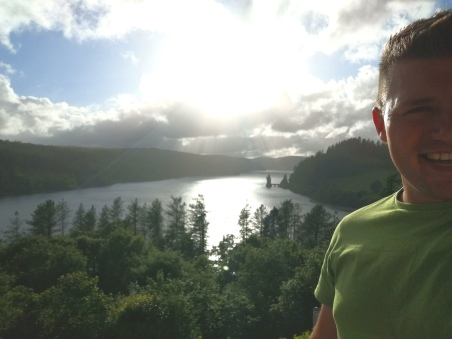
Now, let’s explore ‘Where do I want to go?’ This isn’t just about physical destinations, although travel goals can certainly be a part of it. It’s also about where you see yourself in various aspects of life—career, relationships, personal development—in the short and long term.
Lastly, think about ‘Who do I want to become?’ Envision the best version of yourself. What qualities do you want to embody? How do you want to impact the world around you? Setting intentions for personal growth and character development can guide your journey towards self-improvement.
Once you’ve answered these questions, it’s time to take action. Break down your aspirations into manageable steps and create a roadmap for success. Set goals, both big and small, and hold yourself accountable along the way.
Remember, a life plan is NEVER set in stone. It’s a living documentation that can evolve as you grow and change. It’s always good to stay flexible and open to new opportunities that align with your vision.
Making a life plan is about gaining clarity, setting intentions, and taking purposeful action towards your dreams. So, grab a pen and paper, and start mapping out the life you’ve always imagined. Your future self will thank you for it.
Thank you for reading. If you liked this, be sure to check out my blog breakdowns where I break down my old writing and compare it with my new thoughts of today! You can find that here!
“It’s Okay to Be Not Okay”: Embracing Vulnerability and Finding Strength
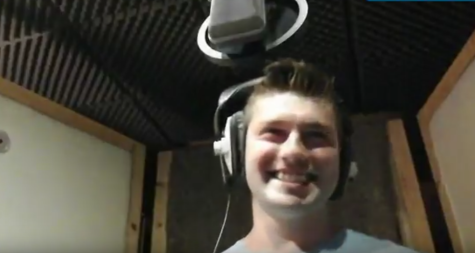
The Power of Kindness: Small Acts, Big Impact
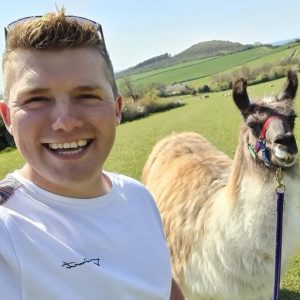
Without an end goal in mind, where are you left?
Let us tackle some questions here…
- If you don’t know what you’re aiming for in life, where do you think you’ll end up?
- If you don’t set something in place for the future, where will your future lie?
- If we push our abilities from where we are now into a place of growth, potential and resilience, would we be better off than staying in the same place when we challenge ourselves to grow?
Answer to: Question number 1 – Without an end goal in mind, where does it leave you? Perhaps confused, bewildered, and in a low self-conscious mind to be able to do anything about it. So what needs to happen from here? We need to have a higher level of self-consciousness so we can tackle and challenge our thoughts to push ourselves into a productive state. This pushes us to excel into a better place when we have the ability to examine what we need to work on, and then work on those steps individually from this point forward.
Example; Let’s say you want to be better with money this year. You need to examine that you’re not very good with money right now. The question here to yourself would be “what can i do to be better with money?” This challenges you to think. It makes you come up with possibilities to what needs to happen. You then figure out that you need to learn financial education. You could do this by seeing what books are out there that would help you learn. Perhaps an online course or too. Maybe even some YouTube videos! This then would create further questions to where you seek the answers. For my money journey a few years ago, it sparked the thought of “I need to save more, but I also need to put my money to work. Saving won’t get me to a better place in the future, however it would create a pot of money so I don’t leave myself in trouble over the next six months if the car goes wrong at the same time as the washing machine needing to be replaced.” So then I think “how can I make my money work for me? Do I need to learn about investing?” So that’s what I did!
Answer to: Question 2 – If I didn’t go on the venture of my goal around money, I couldn’t get to where I needed to be in the future. This is where I began to learn about investing, (while saving too) and this then sets up a thought of my future self. When I think about future me, I need to be vigilant of what steps I do today that will get me to a better place in the future. So this requires a plan.
I sit down now to see where all my money goes. From my paycheck I can see this: 60% on bills, 20% savings and 20% to go into investing. Now I know that a portion of my paycheck is accounted for, I need to see where I can grow this more rapid.
Answer to: Question 3 – Growing from where I was to now seeing where I am today.
I know it’s an important part of growing, but when I got to a point where my paycheck wasn’t stretching as far due to the cost of living rising ridiculously high, I then needed to alter things but without going off track. This leads to more thinking, being creative and planning strategically. This made me grow. I grew into the person I needed most. In a tough time, you need to make sacrifices. To see the potential in yourself even when you’re in a place of vulnerability, you can become more resilient when you challenge yourself to find a way. No matter what it is, find a way. You will reap the rewards when you put it into the universe that you are willing to do anything that will get you to a better place in the long run, whether that means giving up a fancy car, buying less meals out, or not having multiple subscriptions. Find a way. It was a tough year, but I got through it. And so can you!
This was an example of a challenge but you can replace my example with your goal to help you through this. It was super interesting to see others when they see you do this too. People will NEVER uderstand your situation because they are NOT you! You need to be willing to accept that it will look weird from the outside looking in. It doesn’t matter of judgement from others in the short term when you know you’re doing something for future gain. You have to be brave enough to see where you’re heading and to be able to visualise the future which then helps you commit to a better self and makes all the hard work worth it in the end.
Plan ahead, be ready for the challenge and grow from it by levelling up. You deserve everything, but at the same time, you are entitled to nothing if you’re not willing to do what is right.
Good luck on your journey ahead and I hope this helps.
D x
